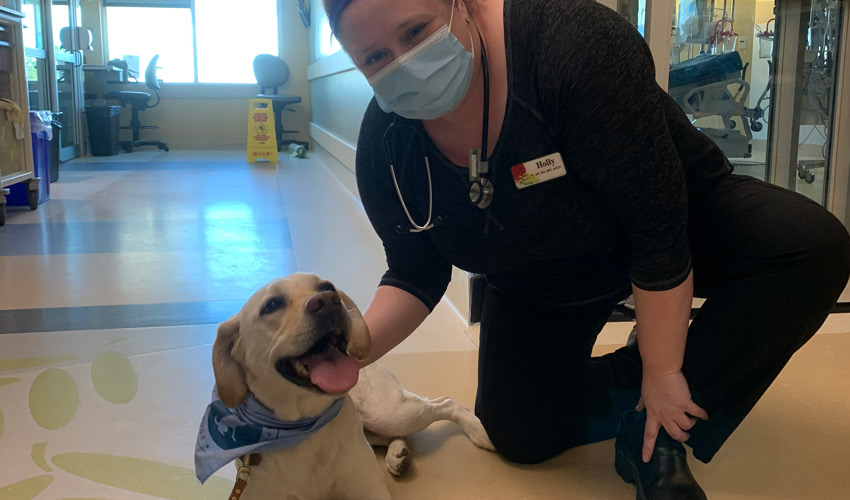Building a stronger foundation for fast-paced nursing environments
Extension certificate stream concentrates on the emergency room
— Mount Royal University | Posted: March 27, 2023

Holly Feist appreciates the lessons that helped better her skills for an emergency-room position.
Long before Holly Feist became assistant professor and course coordinator for MRU’s Advanced Studies in Critical Care Nursing’s (ACCN) Emergency Nursing stream, she was a student in the program.
And the 23-year nursing veteran still appreciates the lessons that helped better her skills for an emergency-room position.
“Back when I was a baby nurse, I wanted to work in emergency and didn’t have the foundation in order to be able to do that,” she says. “I just wanted some of the skills I needed.”
The ACCN program bolstered her resumé in many ways.
“Honestly, it made me a better nurse,” Feist says. “It increased my knowledge and confidence in being able to provide quality nursing care.”
Feist began her career in the Intensive Care Unit, for which the ACCN also offers a stream in Critical Care Nursing.
“I enjoy having to work with or support families on top of the patient, and helping people through difficult times and seeing the good things coming out of really good intensive care,” she says.
Seven years later she made the move to emergency.
Feist still pulls shifts at Foothills Medical Centre’s ER, which she believes positions her well to teach other nurses following in her footsteps.
“I want the curriculum I write and provide the students to be reflective of what’s actually happening at the bedside,” she says.
Solid instructors with real-life experience
Veteran ER nurse, Bill Carr, was impressed by the ACCN Emergency Nursing stream and the real-world, front-line perspectives of its instructors.
“It’s not often you sign up for a university course and have a clinical expert that is teaching and walks the talk,” he says. “You know what they are sharing with you is not only evidence-based, but also you are getting a bit of wisdom that you would not get in another course.
“They have advice you are not going to get from someone who hasn’t worked in that environment.”
Carr had been working as a nurse in other areas for years before he made the switch to emergency nursing.
But he didn’t want to do it without proper preparation.
“Before I made the transition, I started taking the courses. You can’t be too smart or knowledgeable,” says the 43-year-old who works in Foothills Medical Centre’s emergency department. “I want to get my black belt in nursing and I feel like an ER or the ICU is the place to do it.”
The ACCN came highly recommended by a colleague as a good move for any RN shifting to the ER. Those who qualify can opt out of an in-hospital clinical program by applying for Prior Learning Assessment and Recognition, which gives students credit for learnings they have already picked up on the job.
Working in an ER is like stepping into a completely different area of nursing — one that requires unique skills, solid theory and some insight into the culture that comes with being part of a tight-knit team.
Like many of his colleagues, Carr enjoys being at the bedside with patients in a fast and dynamic setting — although the ER was not exactly where he set his sights early in his career.
But now he loves the opportunity to rely on his skills and work with a team to do their best for patients.
“Coming out of school 18 years ago, I told myself I would never work in emergency or intensive care. I just didn’t want the extra stress of having people trying to die on you all the time,” Carr says, who was an ACCN instructor for a semester at MRU.
“I don’t wish these things on anybody, but if they do happen my philosophy is, ‘They’ve got every single bit of my energy and thought devoted to them.’ ”
Find out more about the ACCN or sign up for a virtual information session.

